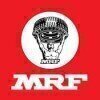Filter interviews by
ABS Refractories Trainee Production Engineer Interview Questions and Answers
ABS Refractories Trainee Production Engineer Interview Experiences
1 interview found
I applied via Company Website and was interviewed in Dec 2022. There were 2 interview rounds.

(2 Questions)
- Q1. What is Refractories? What is glass
- Ans.
Refractories are materials that can withstand high temperatures and are used to line furnaces, kilns, and other high-temperature industrial equipment.
Refractories are heat-resistant materials used in various industries.
They are designed to withstand extreme temperatures and harsh conditions.
Common types of refractories include fireclay, silica, alumina, and magnesite.
They are used to line furnaces, kilns, reactors, and...
- Q2. What is Refractories
- Ans.
Refractories are materials that can withstand high temperatures and are used in furnaces, kilns, and other high-temperature applications.
Refractories are typically made of ceramic materials such as alumina, silica, and magnesia.
They are used to line furnaces, kilns, and other high-temperature equipment to protect them from damage and to maintain high temperatures.
Refractories are also used in the production of metals, ...
Interview Preparation Tips
Top trending discussions






Interview questions from similar companies

Trainee Production Engineer Interview Questions & Answers
Tata Motorsposted on 8 Jul 2024
Question were not that hard it was good
(2 Questions)
- Q1. What is your expected salary?
- Q2. Why do you want to work in Tata motors?
Interview Preparation Tips

I applied via LinkedIn and was interviewed in Feb 2024. There were 2 interview rounds.
Aptitude tests and then gd and then final interview round
(1 Question)
- Q1. Why do you choose mrf

I applied via Walk-in and was interviewed in Nov 2024. There was 1 interview round.
(2 Questions)
- Q1. Basic Metallurgy related questions
- Q2. If your team member stuck in some un- safety condition what will you do... ?
Interview Preparation Tips

(6 Questions)
- Q1. Handling of Validation
- Ans.
Validation in production involves ensuring that processes and products meet quality standards.
Validation involves verifying that equipment, processes, and systems are operating correctly and consistently.
Validation also includes confirming that products meet specifications and quality standards.
Documentation of validation activities is essential for regulatory compliance and continuous improvement.
Examples of validatio...
- Q2. Operations of reactors, centrifuge, sparker filters, anfds, ejectors.
- Q3. Handling of Qualifications
- Q4. Handling of Safety permits
- Ans.
Safety permits are essential for ensuring compliance with regulations and maintaining a safe work environment.
Safety permits are required for certain activities or equipment to ensure they meet safety standards.
Production officers must be familiar with the types of safety permits needed in their industry.
They are responsible for obtaining and renewing safety permits as needed.
Failure to comply with safety permit requir...
- Q5. Operation of Distillation
- Ans.
Distillation is a process used to separate components of a liquid mixture based on differences in boiling points.
Distillation involves heating the liquid mixture to create vapor, then cooling the vapor to condense it back into liquid form.
The components with lower boiling points will vaporize first and be collected as the distillate, while the components with higher boiling points remain in the original container.
Commo...
- Q6. Handling of Deviations
- Ans.
Deviations in production processes must be promptly identified, investigated, and documented to ensure product quality and compliance.
Deviation should be reported immediately to the appropriate personnel
Investigate the root cause of the deviation
Document all findings and actions taken
Implement corrective and preventive actions to prevent recurrence
Review and approve deviation reports before closure
(5 Questions)
- Q1. Handling of CAPA
- Ans.
CAPA refers to Corrective and Preventive Actions taken to address non-conformities and prevent recurrence.
Identify the root cause of the issue
Develop a corrective action plan to address the issue
Implement the corrective action plan
Monitor the effectiveness of the corrective action
Implement preventive actions to prevent recurrence
- Q2. What is DATA INTIGRIY
- Ans.
Data integrity refers to the accuracy, consistency, and reliability of data throughout its lifecycle.
Ensuring data is accurate and reliable
Maintaining consistency of data
Preventing unauthorized access or modifications
Implementing data validation processes
Regularly backing up data to prevent loss
- Q3. Handling Solvents
- Q4. Handling of Batch failures
- Ans.
Batch failures should be analyzed to identify root causes and prevent future occurrences.
Investigate the root cause of the batch failure
Implement corrective actions to prevent future failures
Document the findings and actions taken for future reference
Communicate with relevant stakeholders about the batch failure and resolution
Conduct a review of the production process to identify potential areas for improvement
- Q5. Handling of Deviations
- Ans.
Handling of deviations involves identifying, investigating, and resolving any deviations from standard procedures or specifications.
Deviation should be documented and reported immediately
Investigate root cause of deviation
Implement corrective and preventive actions
Review and update procedures to prevent future deviations
(3 Questions)
- Q1. Current Role and responsibilities
- Q2. Personal information
- Q3. Salary discussion
Interview Preparation Tips
2. Safety and MSD
3.why shifting is required
4.What is the importance of blending
5 type of GMP practices you are following
6. Information from BMR
How dis lation happen
7. About MSDS
8. Why work permit system is required
9. Difference between incident and accident:
10.Work permits
*1)* What is GMP/cGMP as per your understanding? OR What do you know about GMP/cGMP?
*2)* What is Data Integrity?
Explain it with Examples.
*3)* What is Data Manipulation?
Explain with Examples.
*4)* What is meaning of Plant Capacity / Bottleneck / Equipment / Stage..?
*5)* Safety or Process Safety related to your Products.
What/Which kind of Safety Policy do you have in your current company?
*6)* ALCOA
PPE
PH
Chilled water temp
Deviation
GMP
EHS
Process
Operations
Current role and responsibilities
Solvent
Batch fail
CAPA
Validation, qualifications
Skills evaluated in this interview

Production Trainee Interview Questions & Answers
Maruti Suzukiposted on 3 Jan 2025
3 test were their technical, aptitude (verbal and non verbal reasoning) , human behavior.
(2 Questions)
- Q1. Regarding pre-treatment
- Q2. Ed defects and mechanisms

Senior Production Engineer Interview Questions & Answers
Hero MotoCorpposted on 26 Jan 2025
I was interviewed in Jul 2024.
(2 Questions)
- Q1. Line balancing,manpower handling,rejection control
- Q2. Fmea, production related different types of questions
(1 Question)
- Q1. 7qc,tool,line balancing,manpower handling,root cause analysis, inventory planning capa,six sigma, rejection analysis
(1 Question)
- Q1. New assembly line setup related documents prepration
(1 Question)
- Q1. Line balancing,manpower handling, production documents related questions

I applied via Walk-in and was interviewed in Oct 2024. There were 2 interview rounds.
(2 Questions)
- Q1. What is your education qualification
- Q2. Tell me about your self
(2 Questions)
- Q1. Tell me about your family
- Q2. Tell me about your project
- Ans.
My project involved coordinating the production of a new line of eco-friendly packaging materials.
Managed a team of production staff to ensure timely completion of orders
Implemented new sustainable practices to reduce waste and improve efficiency
Collaborated with suppliers to source environmentally friendly materials
Conducted quality control checks to maintain high standards of production
Successfully launched the new p

Production Manager Interview Questions & Answers
Sun Pharmaceutical Industriesposted on 16 Jul 2024
(5 Questions)
- Q1. Tell me about DCS HMI
- Q2. How to manage manpower &cost reduction
- Ans.
Manpower can be managed by proper planning, training, and delegation. Cost reduction can be achieved through efficiency improvements, waste reduction, and negotiation with suppliers.
Develop a detailed manpower plan based on workload and skill requirements
Invest in training and development programs to upskill existing employees
Delegate tasks effectively to ensure optimal use of manpower
Implement efficiency improvements ...
- Q3. About documentation
- Q4. Production planning
- Q5. Batchprocess with safety
- Ans.
Batch process with safety involves ensuring that production processes are carried out in a safe and controlled manner.
Implementing safety protocols and procedures for each step of the batch process
Regularly conducting safety audits and inspections to identify potential hazards
Providing proper training to employees on safety measures and emergency procedures
Using appropriate personal protective equipment (PPE) when hand...

I applied via Company Website and was interviewed in Apr 2024. There was 1 interview round.
(5 Questions)
- Q1. Mfg Machine opereating
- Q2. Production .mfg
- Q3. Filling machine
- Q4. Tablet Cotting department
- Q5. Granulation department
Interview Preparation Tips
- Hr Fresher
ABS Refractories Interview FAQs
Tell us how to improve this page.
Interview Questions for Popular Designations
- Production Engineer Interview Questions
- Production Supervisor Interview Questions
- Production Manager Interview Questions
- Production Officer Interview Questions
- Executive Production Interview Questions
- Production Interview Questions
- Senior Production Engineer Interview Questions
- Production Chemist Interview Questions
- Show more
ABS Refractories Trainee Production Engineer Interview Process
based on 1 interview
Interview experience
Interview Questions from Similar Companies

Tata Motors

Maruti Suzuki

Asian Paints

Samsung
- Home >
- Interviews >
- ABS Refractories Interview Questions >
- ABS Refractories Trainee Production Engineer Interview Questions








